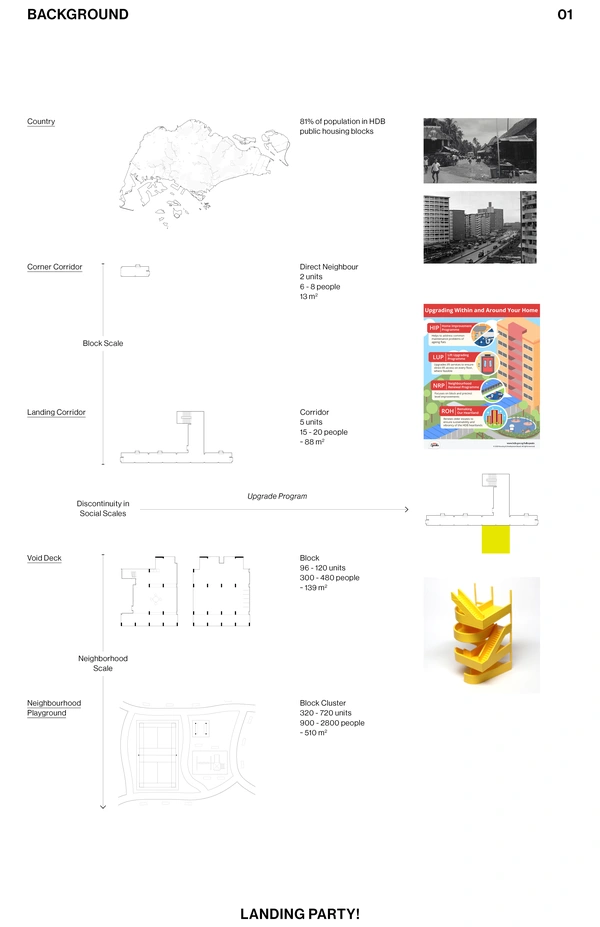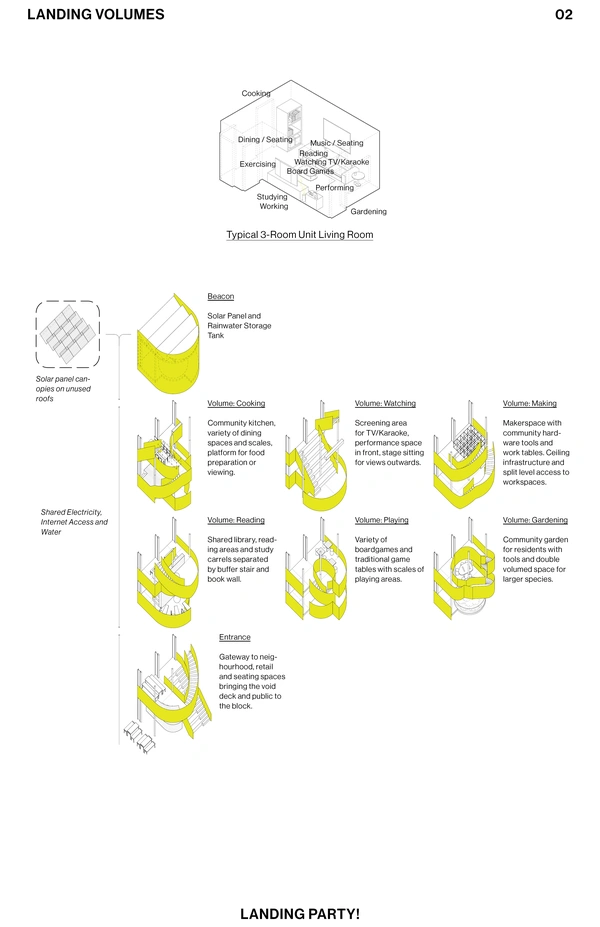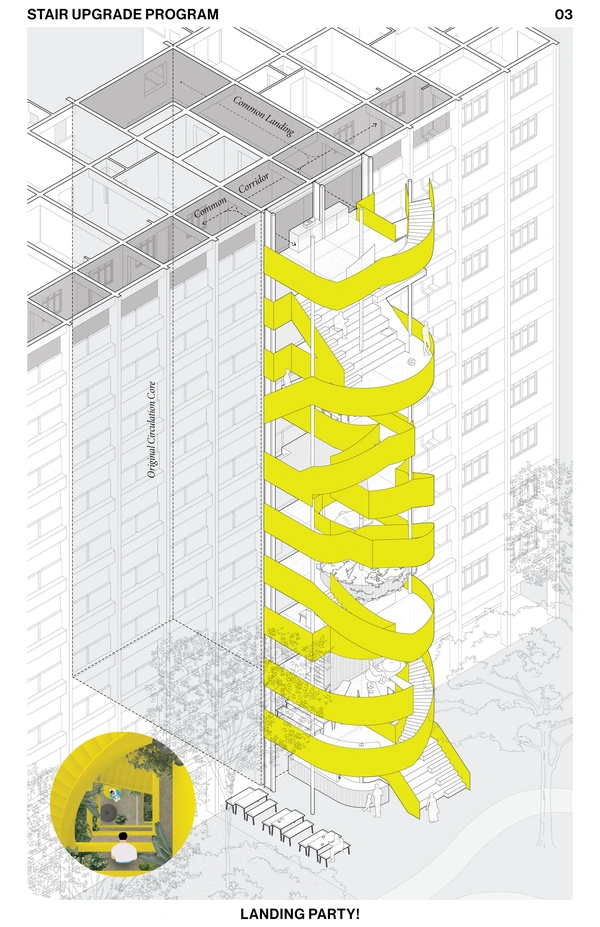Public housing in Singapore, or "HDB flats", were inspired by traditional kampung housing found in pre-1960s Singapore, which hosted a rich social environment that fostered close cohesion of the village. The modern housing blocks drew upon that to develop a series of social spaces that played on the movement of people around and about the blocks and neighbourhoods to meet and interact with one another, creating neighbourhood bonds that transcends ethnicity or social strata.
However, contemporary conditions of alienation have affected the public housing dynamic, creating detachment despite the close proximity, while increased affluence of the people and shifting sensibilities towards convenience and comfort have also pushed housing design away from social values, in favor of recent layouts that favor views, private floor area, and regulated common spaces that restrict use. The pandemic has exacerbated those shifts; creating distrust of neighbours through social policies, or cautious interactions from fear of the virus. As we progress towards normalcy, a more positivist outlook is necessary, both to cope endemically with the virus while reflecting on the society we have left behind, and aspiring towards renewed bonds of closeness and shared community.
To that end, Landing Party! is a speculative model in the reconnection of lost physical connections - a middle ground between the thresholds of domesticity and large-scale town/city public spaces. Attaching to the sides of housing blocks and bridging verticality, the add-on co-ops the existing circulation cores to augment common spaces with forms for domestic activities and communal enjoyment with one’s neighbors. Through shared experiences and infrastructure to attract and gather, while overcoming the pandemic fear of the ‘other’, the tower represents a proactive mean to bridge indifference and rebuild the neighbourly bonds that form the foundations of community, strengthening them as bulwarks against future crises.
After all we have experienced and the patchwork of efforts to allow social relationships to continue during the pandemic, we have seen that physical interaction is irreplaceable - we just need a platform for that yearning to manifest itself.
Landing Party! examines the role of the stair as places of interaction and expands its function into creating conditions that encourage people to stay and gather. The tower is designed as an economical infrastructure, a spine that introduces sustainability through sharing of utilities, from harvesting water, to collection of solar power and more, that is still uncommon in Singapore's public housing network. The living areas of one's abode can be expanded into a series of semi-private, but generous volumes that attempts to bring activities within each home to the outside, showing how neighbours share interests and activities that could help strengthen community bonds. The stair, once seen as a necessary but obtrusive element tucked away into darkened cores, is celebrated here, playing a key role in crafting the spaces and, via a modular fabrication process, creating diverse environments for each block that could foster cross-block interactions in smaller scale public environments.

A very brief introduction to how the structure bridges the extremes in social spaces within existing neighbourhoods in Singapore.

Each tower comes with a beacon that brings more sustainable sources of utilities, an entrance that introduces cottage retail, and a variety of middle spaces that generates different experiences of moving vertically depending on their sequences.

The stair upgrade program, envisioned as part of the national public housing upgrade programs, will create the impetus for attaching the towers to the block.

Sharing Singapore's national interest, food!
STUDY GROUP is a part-time, revolving collaboration between Eugene Ong and his friends, the conversations and discussions around everyday issues that drive contemporary life and architecture's role in tackling them. Through a critical investigation of how things came to be, we hope to deconstruct paradigms of today and examining new ways of approaching our environments through a more equitable, ecological, and economical lens.
